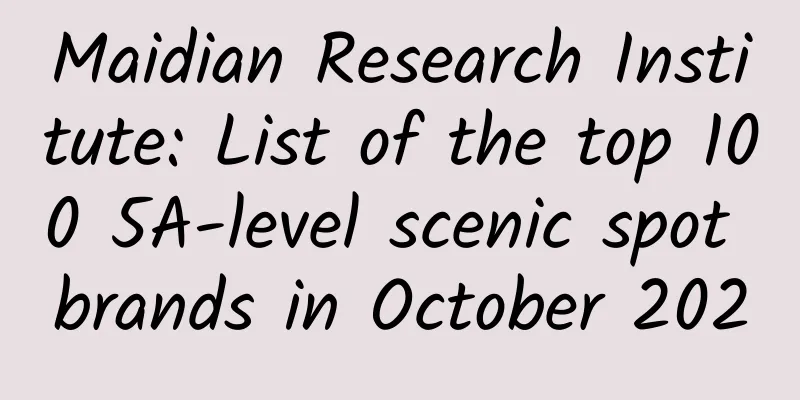2022 Shanghai delegation leader white paper

|
Women have become the main force in the gender composition of group leaders. There are two reasons that can almost prove this phenomenon. First, in today's Chinese family consumption environment, more than 60% are dominated by women (according to research by Boston Consulting Group (BCG)). Another reason is that in the entire community group buying process (including docking resources, managing volunteer teams, and being responsible for residents' after-sales service, etc.), communication plays a very important role. A study by the University of Manchester in the UK 10 years ago showed that women's communication skills are generally better than men, and compared with men, they can usually express themselves clearly with fewer words. The youngest tour leader in the survey questionnaire was only 16 years old, and the oldest was 54 years old. The ages of tour leaders were mainly concentrated between 25 and 50 years old, among which the largest number of tour leaders were between 31 and 40 years old, accounting for 54.3% of the total. The next largest number were those between 41 and 50 years old, accounting for 28.0%, and those between 25 and 30 years old, accounting for 26.3% of the total. Among the respondents who served as group leaders, more than 89.1% had their main jobs, with the largest number of people working in the trade/consumption/manufacturing industry and service/retail, each accounting for 16.0% of the total. We speculate that some of the work of group leaders has something in common with their main jobs. During this survey, we met Bella, a post-90s girl who took charge of nearly 30 small community group buying activities in a street in Xuhui. Usually, her main job is an employee in the retail industry operations department. Bella believes that the skills and systems used in work are often used in the group buying process. For example, at the end of each year, her department needs to formulate a clearing plan for commodity inventory in a timely manner, how to connect with other stores, allocate goods, and other work contents, which are similar to connecting with suppliers during the group buying process and distributing goods to different communities in the street. Among the respondents, more than 85.7% of the group leaders have a bachelor's degree, master's degree or above, the remaining 10.9% have an associate degree, and 3.4% have below an associate degree. Pudong New Area has the largest number of group leaders, followed by Minhang District and Putuo District. One reason for this result is related to the lockdown period and the start time of the lockdown. On the evening of March 27, Shanghai announced the lockdown of Pudong and Puxi. Residents in Pudong only had one night (less than 9 hours) to stock up on supplies, while residents in Puxi had 4 days of buffer time to purchase. Shorter preparation time and longer lockdown time made residents in Pudong New Area rely more on group leaders to maintain normal life. Another reason may be related to the number of permanent residents. According to the statistics of the permanent population of each administrative district in 2021, Pudong New Area has the largest permanent population in the city, with a total of 5.6815 million people, followed by Minhang District with 2.6535 million people, and the number of group leaders also ranks second. 81.7% of the group leaders mainly organize group buying activities for the community where they live, but 18.3% of the group leaders serve the entire street community. Take Bella mentioned above as an example. The community where she lives consists of multiple roads, namely: Gaoan Road, Anting Road, Yongjia Road, Jianguo West Road and Urumqi South Road. 90% of the communities on these roads have less than 100 people, and it is almost impossible to form a group in many community group purchases. So under her organization and leadership, these communities formed an organization similar to the "alliance" nature, and everyone joined together to buy in the group. The lockdown period of Shanghai was: Pudong from 5:00 on March 28 to 5:00 on April 1, and Puxi from 3:00 on April 1 to 3:00 on April 5. Unfortunately, there was no sign of unblocking the entire city by April 5, and the food stored by residents might not be able to hold out. Therefore, 75.4% of the group leaders responded quickly before April 10 and organized the first community group purchase activity. Only 6.9% of the group leaders believed that community group buying activities had become popular before April 5. At that time, group buying goods were mainly concentrated on the purchase of basic supplies such as vegetables, fruits, meat and eggs, but they had not yet formed a super-large scale. 41.1% of the group leaders believed that between April 5 and April 10, everyone’s enthusiasm for group buying was the highest, because during this period most people realized that they could not be unblocked immediately, and more people purchased basic supplies. After April 10, most people stockpiled supply-guaranteed supplies and began to purchase more upgraded supplies. 46.9% of the group leaders believed that group buying during this period was the most lively. At the same time, major brands have also begun to launch community group buying services, so everyone’s demand has increased, and they have begun to frequently buy coffee, bread baking, snacks, instant noodles, fried chicken, cola and other products. Among the group leaders who participated in the survey, almost 100% organized community group purchases twice or more, and everyone continued this activity for nearly a month for different purposes. One of the data is very heartwarming-88.0% of people believe that organizing group purchases is mainly to help other residents in the community. The two reasons that followed were "to meet one's own needs for certain materials" and "to help one's family". At the same time, 30.9% of people believed that if group purchases were not organized, they would lose their basic source of food. One of the main reasons is that there are many people living in commercial apartments who cannot receive materials from the government and supply merchants. A few people also want to take this opportunity to study the community group purchase model for future use. Before the emergence of community group buying activities, 64.6% of people chose to squat and buy on major grocery shopping apps. However, people who have experienced the food rush in Shanghai must be well aware of the pain of food rush. Even if they click into the shopping cart with a stopwatch, they will still be told that "lack of transportation capacity" or "insufficient inventory" will not be able to buy vegetables. There are also 48.6% of people who rely on supplies distributed by the community to survive, but because the situation in each street and community is different, we often see in the news that a certain community has distributed supplies for five consecutive days, but a certain administrative district has been under lockdown for 10 days and still has not distributed any supplies. There are also 26.9% of people and 21.7% of people who rely on supplies distributed by unit suppliers and supplies sent by relatives and friends to survive. What is worrying is that 10.9% of people have no channels to buy supplies. Therefore, group buying came into being, which can be said to be a way to save lives. We classified three types of supplies in the questionnaire, namely supply-guaranteed supplies (vegetables, fruits, meat, eggs, rice, flour, grain, oil, alcohol, etc.), upgraded supply-guaranteed supplies (steak, seafood, bread, cake, fried chicken, snacks, dairy drinks, coffee, cola, instant noodles, self-heating rice, etc.) and upgraded improvement supplies (take-out from high-end restaurants, branded restaurants, etc.). Most communities and streets will distribute supply guarantee materials. Although some communities will also distribute bread baking, milk drinks and other materials, everyone has their own brand preferences for upgraded materials, and consumer demand is more extensive. It is obvious that community distribution alone is in short supply. Therefore, 64.0% of group leaders mainly organize group purchases of upgraded supply guarantee materials, and 30.9% participate in group purchases of supply guarantee materials. Later, as major brand restaurants also launched community group purchase services, 5.1% of group leaders mainly organized the purchase of such goods. One point worth mentioning here is that based on our previous in-depth interviews with many group leaders in Shanghai, each community and even each person has different evaluations and classifications of items. Some people think that except for vegetables, fruits, meat, eggs, rice, flour, grains and oil, they are all non-essential items and do not need to be purchased in groups. The main consideration is to reduce the risk of virus transmission caused by supplies. But for some people, steak, milk, coffee and other commodities are also necessities of daily life. Therefore, how to balance the judgment and needs of different residents for items is also a big test for group leaders. There are many ways for group leaders to obtain sources of goods. The four main ways are to join a group leader group to get news (70.3%), obtain group purchase information through media platforms (62.9%), contact existing suppliers (from their own unit or people they know) (59.4%) and contact supply units announced by the government Consumer Protection Committee (40.0%). 96.6% of group leaders use software or tools to assist their work during the group buying process, of which 60.6% use Kuaituantuan, 29.7% use Qunjielong, and some use tools such as Tencent Docs, Graphite Docs, Group Voting, WJX, Excel, etc. Kuai Tuan Tuan, the most popular app under Pinduoduo, has the following advantages: convenient operation and low handling fees, which are mainly reflected in the following aspects: the entry process is convenient, you can be the group leader without spending money, and you can directly start a group after listing the products; the interface is easy to use, you can upload product pictures and text information with your mobile phone, and there is also a one-click form generation function; settlement and withdrawal are convenient, and you can withdraw cash directly after the backend arrives. Kuai Tuan Tuan itself does not charge commissions, only withdrawal fees. They originally charged a service fee of 0.6%, but due to the Shanghai epidemic, the April service fee was promised to be returned in May, which makes people feel very heartwarming. The questionnaire responses showed that 28.0% of group leaders believed that distributing goods was the most difficult part of the entire process. The rest were classified in descending order of difficulty, namely: buying desired popular goods (18.3%), arranging logistics (16.6%), finding sources of goods (14.9%), data statistics (7.4%), managing volunteer teams (2.9%) and collecting payments (1.1%). Bella is a special case. As the head of the group, she is in charge of more than 30 communities, so she needs to connect with the sub-group leaders of 30 communities when distributing goods. Therefore, she has developed a detailed SOP process, dividing the responsibilities of each sub-group leader and volunteer to individuals. She is mainly responsible for the early group purchase selection, quality control, and headcount. The sub-group leaders of each community are mainly responsible for receiving the goods and distributing them to their own communities. In this way, no matter which step has problems, they can be traced back to specific people, making the distribution of goods more efficient. Although there are many links involved in the community group buying process, 77.7% of the group leaders in the questionnaire said that they had never quarreled with anyone. 4.6% of the group leaders quarreled with suppliers, 5.7% of the group leaders quarreled with the neighborhood committee, 0.6% quarreled with the property management, and 4.6% quarreled with the group members. The main reason here is that some group members are too demanding, such as requiring volunteers to deliver goods to the doorstep (not for special reasons, such as physical inconvenience, etc.). Some group leaders also mentioned that they had friction with other residents, one of the reasons being that some residents firmly opposed group buying. The work of a group leader is very hard, but in Shanghai, many people still organize orderly group purchase activities every day. In the questionnaire, 81.1% of the group leaders said that they are willing to continue to organize group purchases in the future. The reasons are mainly concentrated on "more spare time", "getting cost-effective goods", "meeting new friends", "exercising personal comprehensive abilities", "having a strong desire to share", "taking this opportunity to increase customer stickiness and become a leader in private traffic", etc. The most frequently appearing reason is "serving the community neighbors and providing a long-term good source of supplies for the family". Based on the results of this survey, we made the following analysis and speculation: First of all, community group buying activities promote everyone's connection and interaction. Some people say that Shanghai is an ultra-modern city, where everyone lives in beautiful high-rise buildings, but the human relationships are weak. But in this epidemic in 2022, through group buying activities organized by group leaders, the people of Shanghai have restored the lane culture that used to focus more on emotional connections , forming a "strong connection" based on communities and streets. In many group purchases, groups such as group leaders and volunteers have helped residents solve their basic living needs and even personalized needs. In this self-governing community atmosphere, the sense of trust between people has also increased . Secondly, the sustainable development of the community group purchase model in Shanghai may become one of the consumption habits of Shanghai people in the future. From early April to late April, group purchase activities have gone through a process from imperfection to maturity. In the early stage, the group purchase market was generally in a state of supply exceeding demand. Due to various factors such as imperfect price system, information asymmetry, and insufficient transportation capacity, there were many cases where people still wanted to buy group purchases even when the price doubled. In the middle and late stages, group buying activities tend to be formalized and systematized. Group leaders can obtain more public channel information, and with the existing supply resources in hand, it has gradually become normal to compare prices before starting a group and find high-cost-effective products. As various brands join the ranks of community group buying and the scope of information dissemination becomes wider, more brand merchants will open up group buying channels in the future, and group leaders will also get more supply rights for improvement materials, gradually breaking the early price monopoly system, opening up a free competition group buying market , and consumers will have more choices. Third, the "profession" of group leader will not disappear, but will only be updated and iterated. In early April, the "profession" of group leader in Shanghai was born out of necessity, but after nearly a month of development, as of April 26, 80% of the respondents in our questionnaire expressed their willingness to continue to serve as group leader. We have reason to believe that when the community group-buying model develops to a later stage, or even after the market is fully opened, the profession of "group leader" will continue to exist and will continue to develop and change. Some group leaders will retire and return to their normal work and life, while others may continue to find and share more cost-effective and high-quality living supplies for themselves and more people around them . Those of us who are still waiting for the day of unblocking can wait and see together. |
<<: Talk about e-commerce: D2C e-commerce
Recommend
The harm and benefits of drinking Pueraria root soaked in water
Pueraria root is one of the most common medicinal...
Will drinking lemon water cause kidney stones? Can’t you soak lemons in hot water? Four common misconceptions about lemon water revealed!
Lemon, a magical fruit known for its sourness, ha...
Is it really such an easy way to lose weight by not eating staple foods and eating more meat?
A pharmacist in the company had been overweight f...
[Popular Science of Chinese Military Technology] Will the aerial aircraft carriers in science fiction movies appear on future battlefields?
In many superhero and science fiction movies, air...
Can Panax notoginseng powder remove freckles?
Freckles in some patients are caused by blood blo...
The efficacy and function of loose pen tip
Pine pen head is a very common Chinese medicine a...
Why did dinosaurs escape the end-Triassic mass extinction? The answer is found
◎ Science and Technology Daily reporter Zhang Ye ...
The efficacy and function of stinking vitex
Foggia odorata is a medicinal material that is qu...
Which eight parts are Demi-Gods and Semi-Devils?
This article was first published by Hunzhi (WeCha...
How much "junk DNA" is hidden in your body? Their mission is mysterious
In life, everyone is familiar with what garbage i...
What are the effects and functions of drinking Pueraria root soaked in water?
Pueraria root is a relatively common Chinese medi...
Do you know the effects and functions of Pinellia ternata?
Pinellia is a very good Chinese medicinal materia...
What are the medicinal properties of croton
Croton can effectively help us treat indigestion,...
The efficacy and function of red hudouqi
Red Hudouqi is a very common medicinal material i...









